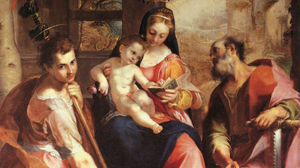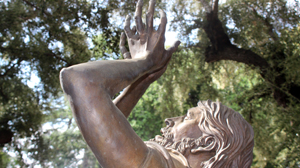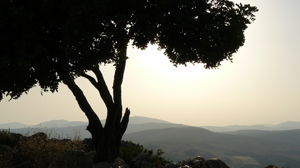Scripture:
Reflection:
In today’s gospel we have a woman who is possessed by a spirit, drained of her strength, and badly stooped. And Jesus cures her of her infirmity.
The chief of the synagogue criticizes Jesus for curing on the Sabbath. The chief of the synagogue was apparently healthy and needed no cure. Apparently healthy. Yes, his body may have been healthy, but what about his soul? He comes across as one possessed with a spirit of self-righteousness, badly stooped with pride, and so infirm that he cannot recognize who Jesus is. Who was more in need of a cure, the woman or the chief of the synagogue?
Where is healing needed in our world today? Yes, there are many people who are physically infirm and in need of a cure. But many others are crippled by anger, shackled by fear, eaten up by greed, impaired by hypocrisy, blinded by prejudice, starving for appreciation and thirsting for love. Infirmity is all around.
At Mass we bring up bread and wine. We ask the Holy Spirit to come upon this bread and wine and transform it into the Body and Blood of Christ. This bread and wine represent not only all of us present, but our whole world. We place all the people of the world upon our altar and ask the Holy Spirit transform all of us. Transform all anger into forgiveness, all fear into courage, all greed into generosity, all hypocrisy into truth, all prejudice into understanding. Nourish the starving with compassion and the thirsting with love.
We ask the Holy Spirit to transform all people with the spirit of adoption through which all can cry out together, “Abba, Father.” If we recognize that we are all children of God, created by God, dependent up God and loved by God, then we have well-grounded hope for the cure that is peace. We can stand up straight and continually be thanking God.
Fr. Alan Phillip, C.P. is a member of the Passionist Community at Mater Dolorosa Retreat Center, Sierra Madre, California. http://www.alanphillipcp.com/







